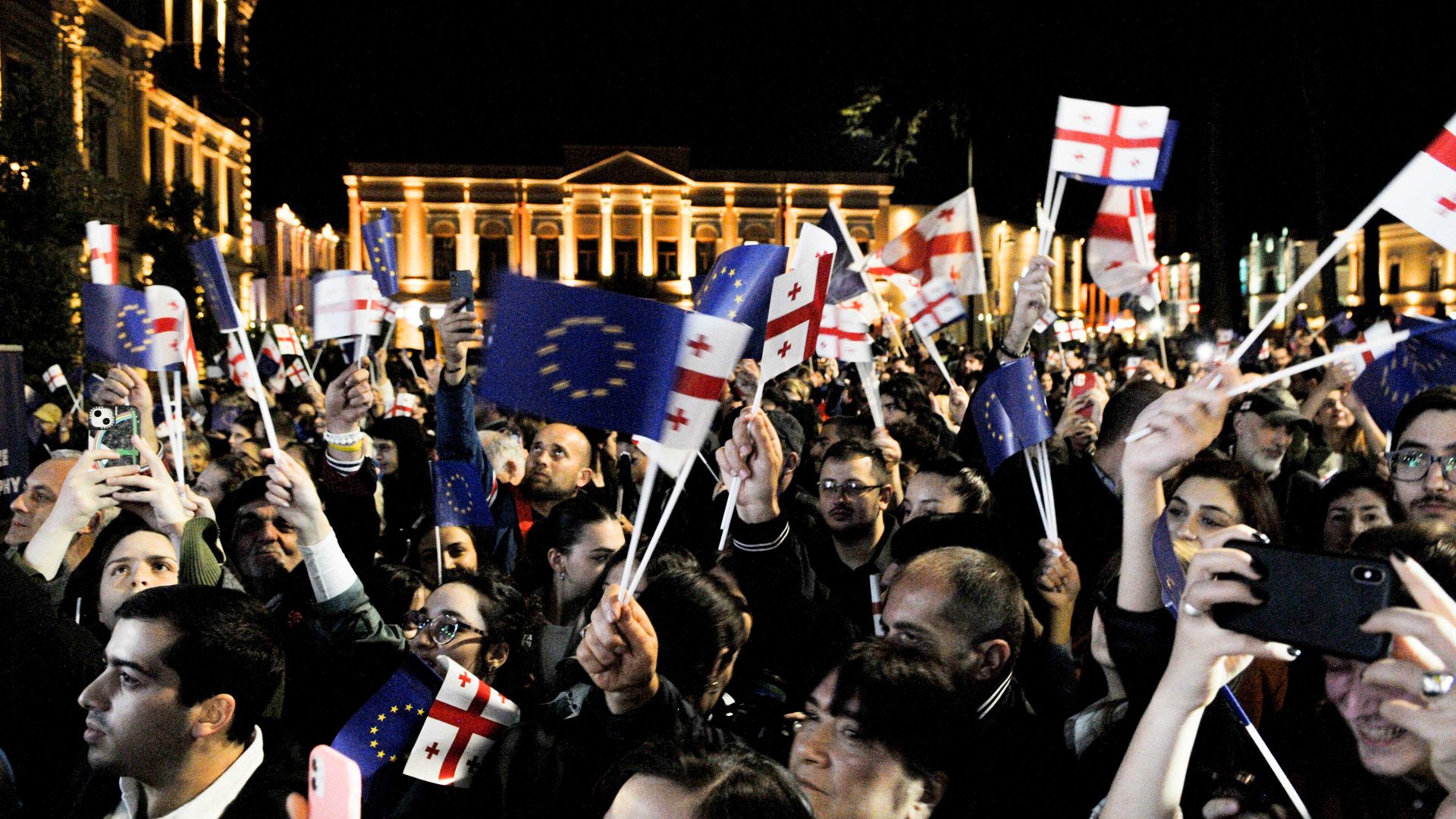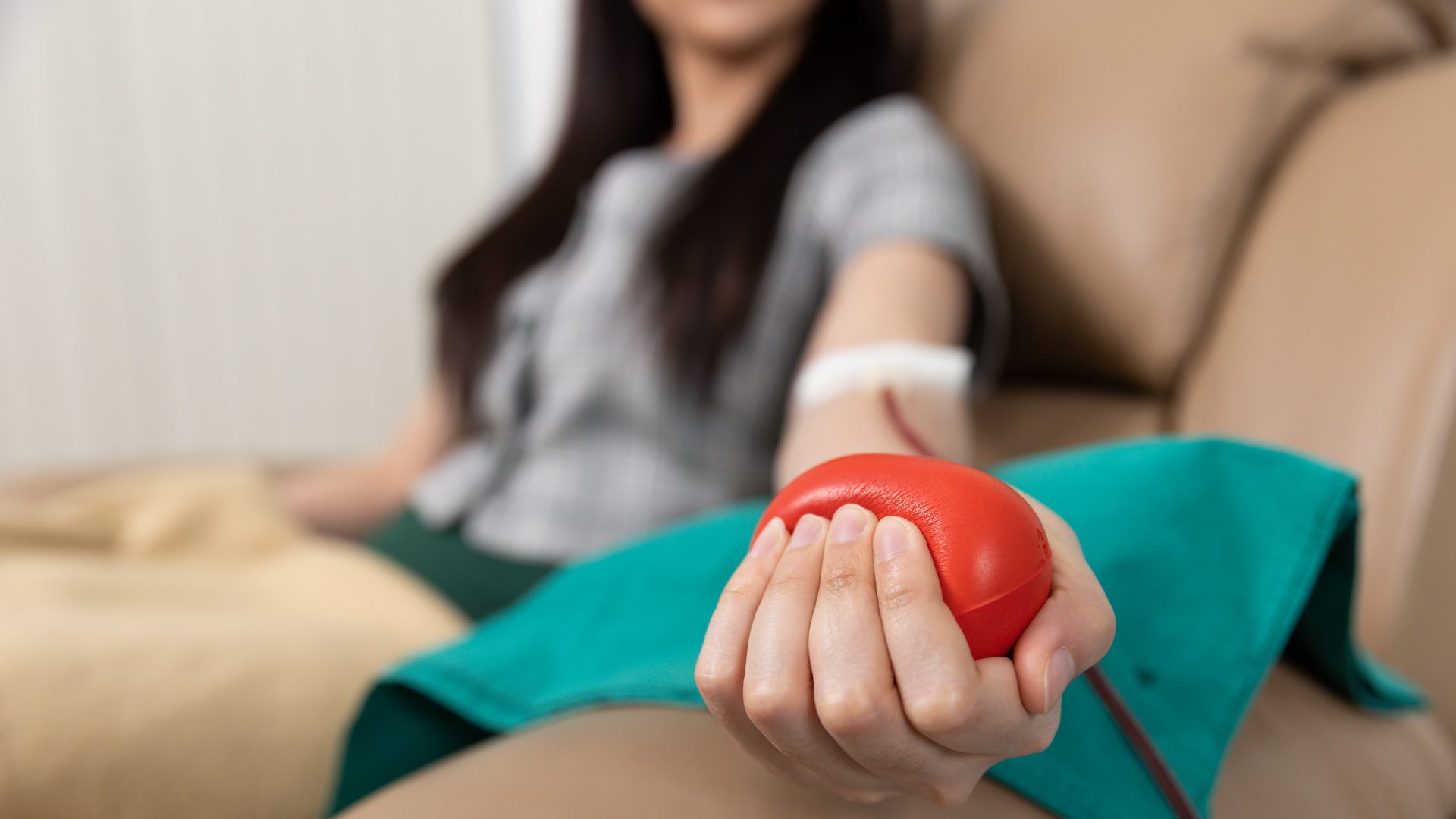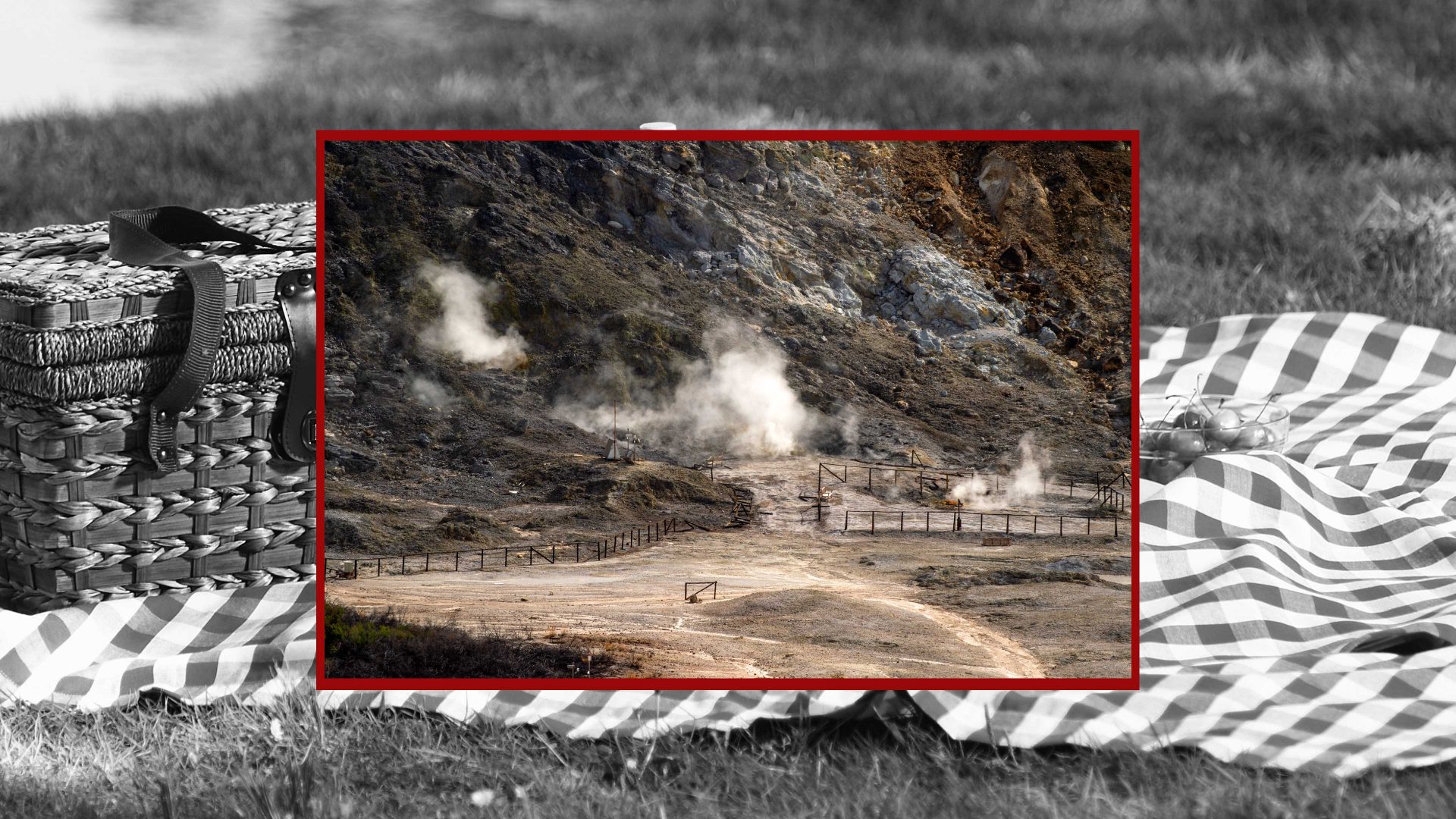The European Commission’s Facebook page lit up on November 8, the day that Georgia was recommended for EU candidacy status. The post had 58,000 responses, mostly from Georgians, and I was one of them. The idea of Georgia being in the EU family is a dream, and it’s close. In homes across Georgia, in administrative buildings and in the streets of the capital, Tbilisi, Georgian and EU flags have been flying side by side. My foreign friends ask me: “Why so many EU flags?”
On November 8, I was in Stockholm, together with a group of Georgian journalists, watching the live stream from the European Commission on a tiny smartphone screen. When the decision was announced, it was hard to stay calm. The decades of protests and demonstrations in Georgia have been in support of the values we share with European societies. The challenge in Georgia has come from Russian influence and propaganda.
The Georgian authorities have been resistant to EU integration, and this has created a rupture between the government and the people. In May 2022, Nika Gvaramia was arrested. He is the director of Mtavari, a TV channel critical of the government, and he was sentenced to three and a half years in prison for abuse of power and for harming the financial interests of the Rustavi 2 TV channel. It was a clear sign that the courts were being used to oppress critics. A year later Gvaramia was pardoned by Salome Zourabichvili, the president of Georgia.
In order to progress with membership, Georgia must fulfil 12 objectives, including getting rid of its oligarchs and making its politics less polarised. Ucha Nanuashvili, founder of the Democracy Research Institute, says that only one priority out of 12 has been fully implemented.
He also stressed that the Georgian government has not done enough to earn candidate status – it has distanced itself from the EU and the west. “During the last two years, we have witnessed the rise of anti-western rhetoric and Russian propaganda, and the government is actively involved in this process. Obtaining candidate EU member state status is not only a significant step towards realising the European aspirations of Georgians, but also a vital means of diminishing Russia’s influence in Georgia.”
Nanuashvili says that the Georgian government has escalated tension not only with the opposition, but also with the country’s national institutions. The resulting atmosphere of extreme political polarisation remains the most profound challenge on the route to European membership.
Despite these many ongoing challenges, support for membership across civil society has always been some of the strongest in the region. But we are still very vulnerable to Russian propaganda and influences here. Georgia was subjected to Soviet propaganda and censorship for decades, and it seems the Kremlin still assumes that that level of Russian influence is possible and welcome.
After Russia launched its full-scale war in Ukraine, it immediately became clear how much of a threat the Kremlin truly posed. But we have been in a state of military tension with Moscow ever since August 2008, when Russia bombed Georgia. That day, I was driving to Tbilisi with my four-year-old daughter, and the city of Gori was under intense shelling. Western leaders arrived in Tbilisi and expressed their support for Georgia. But around 20% of Georgia’s territories remain under occupation.
For Georgians, joining the European family will have deep consequences. November 8 was a huge day for the Georgian people, a historic day when my country made a step towards the EU, and away from Moscow. It is what we have wanted for decades.



